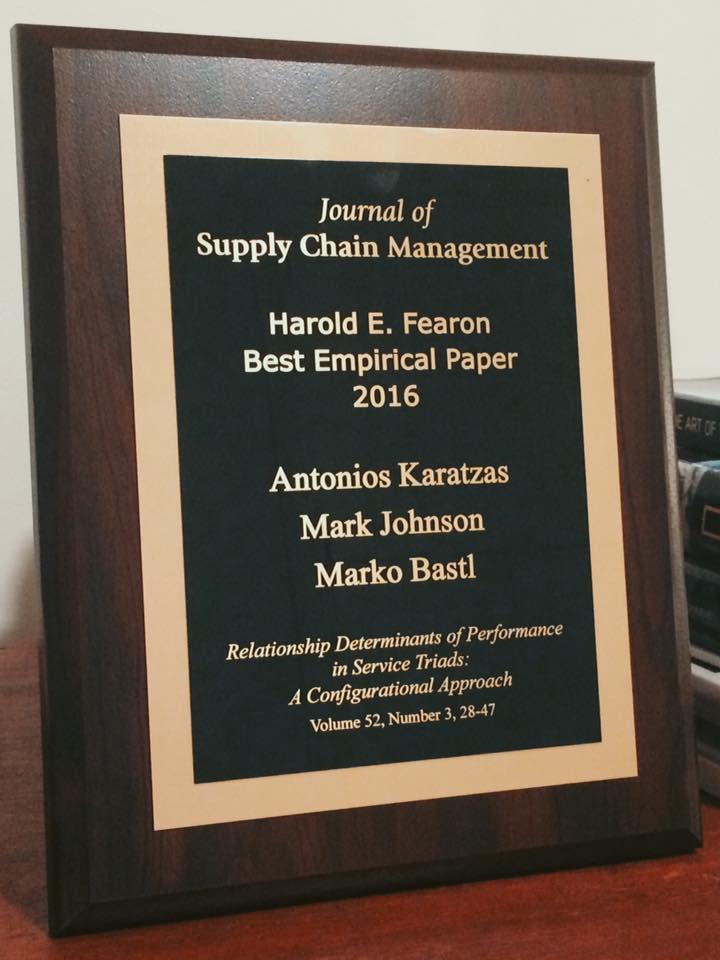- New Building: O'Brien Hall
- Dean's Office Directory
- Dean's Leadership Council
- Mission, Vision & Priorities
- Rankings & Recognition
- AACSB Accreditation
- Marquee Events
- Social Media
- Search Business website
Prof Bastl receives Best Paper Award
 Assistant Professor of Supply Chain, Dr. Marko Bastl, recently received the Harold E. Fearon Award for the best empirical paper in 2016. This award is given by the Journal of Supply Chain Management (JSCM). JSCM is a journal with the highest impact factor in the field of Operations and Supply Chain Management, and is ranked among top 1% of all management journals in the world. The award-winning paper is titled “Relationship Determinants of Service Performance: A configurational approach”, and was co-authored with Antonios Karatzas and Mark Johnson.
Assistant Professor of Supply Chain, Dr. Marko Bastl, recently received the Harold E. Fearon Award for the best empirical paper in 2016. This award is given by the Journal of Supply Chain Management (JSCM). JSCM is a journal with the highest impact factor in the field of Operations and Supply Chain Management, and is ranked among top 1% of all management journals in the world. The award-winning paper is titled “Relationship Determinants of Service Performance: A configurational approach”, and was co-authored with Antonios Karatzas and Mark Johnson.
About the study:
The paper is about a study of relationship management and service performance in service triads. The increasing popularity of service based business models among manufacturers – e.g. provision of solutions, makes service triads a commonplace within business. For example, when Caterpillar commits to its customer – e.g. a mining company, that they will provide them with 99% of availability of their [Caterpillar’s] mining equipment, they very frequently rely on service providers for the provision of equipment maintenance, spare parts supply, collection and analysis of equipment diagnostic data, etc. The three firms – Caterpillar, the mine and the service provider form a service triad. Firms in service triads are highly relationship and performance interdependent, therefore how a manufacturer manages a relationship with its service supplier, becomes of paramount importance for achieving customer satisfaction. This study introduced in the field of Operations and Supply Chain Management a new analytical technique, called fsQCA (fuzzy set Qualitative Comparative Analysis). This technique enabled us to uncover four different ways (as oppose to one, argued in the extant literature) of how managers of manufacturing companies can structure and manage relationships with their service providers in order for the service providers to achieve a superior service performance towards manufacturer’s customers. Moreover, the introduction of fsQCA in the OSCM field, opened door for studying a myriad of complex supply chain issues in much greater detail than it was possible until today.

